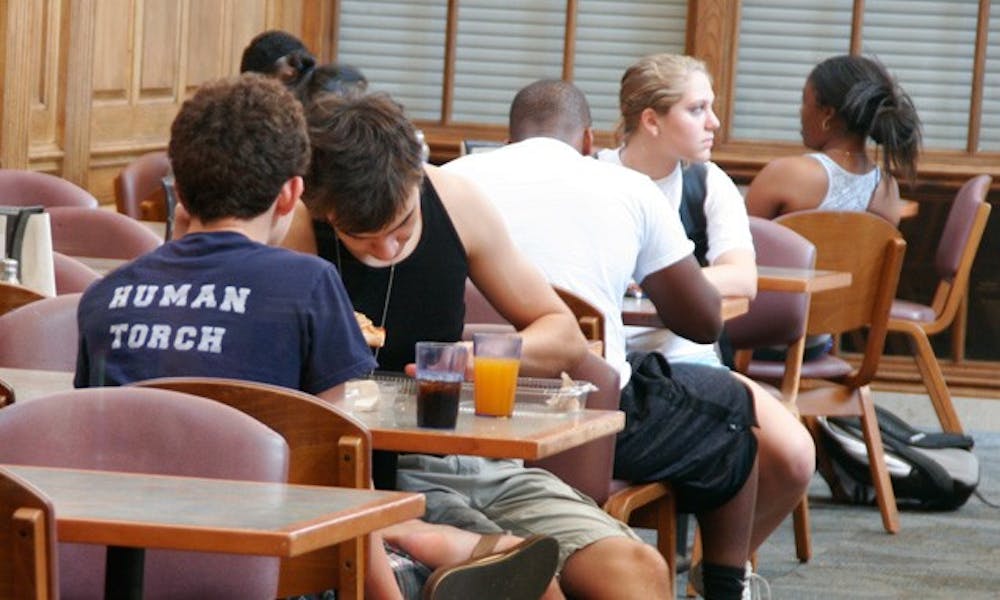As students finish the first month of the school year, upperclassmen might begin to reflect on what the return to Duke means to them. For more than one-fourth of the undergraduate population, however, the first month of college marks an adjustment period to an unfamiliar environment.
Many University resources, including the Student Affairs office, are focused on ensuring that freshmen transition smoothly into college life. Dean of Students Sue Wasiolek said she has seen through her experiences working with freshmen that many students in recent years have found adjusting to the social scene to be the most challenging. She added that part of the concern voiced is related to the college drinking culture and the pressures it places on students.
“Students that come to Duke fairly well-grounded in their values and the ethical part of their lives come here and find that they’re somewhat influenced to shift away from their values by peer pressure,” Wasiolek said.
While some first-years admit that a few peers go to extremes when faced with their sudden liberation, many freshmen said they did not feel this was a class-specific issue.
“It’s not a question of whether you’re a freshman or an upperclassman, but just a basis of how much self-control you have,” said freshman Wahab Sheikh. “Self-control won’t grow substantially in four years.”
Gary Glass, assistant director for outreach and developmental programming for the Counseling and Psychological Services office, said one of the most common issues CAPS counselors encounter is students striving to find their niche in a social group after the shuffle at the beginning of the year.
“I often hear the comparison to the game ‘musical chairs,’ with the sense that the groups have already been formed at a certain point in the Fall semester,” he said. “Also, early in the Spring semester, a lot of women students seem to struggle with a sense of rejection and loss of confidence related to their experience in Panhellenic recruitment.”
For most freshmen, their first year at Duke is also their first experience with independence. Several freshmen said their newfound self-responsibility was the hardest part of the transition to life at Duke.
“You have so much freedom,” said freshman Elizabeth Turner. “It’s hard to actually allot time for school and focus, just because there are so many activities. There’s always something to distract you.”
It can also be difficult for new college students to remember to sleep enough and eat right, said freshman Sean Miller, though he added that in accepting this responsibility, “you feel more like a real person.”
Achieving a sense of belonging at Duke is one of the most individualistic aspects of the adjustment to freshman year. Some freshmen already feel completely acclimated to their new setting, some felt they were still in the process and others said it still had not dawned on them that they were at Duke.
“These feelings are quite normal,” Wasiolek said. “Almost every student goes through some period of doubt that they made the right decision: ‘Is this the right place for me?’ One thing I would like to remind students of is that there are many people who are here to help them work through that. That’s one of the main goals of Student Affairs.”
But as midterms and Fall Break approach, freshmen are continuing to feel more established at Duke.
“Trying to establish that this is where I’m living, this is my home... that hasn’t really settled in yet, finding that sense of belonging,” freshman Eileen Adams said. “But I think that will come with time.”
Get The Chronicle straight to your inbox
Signup for our weekly newsletter. Cancel at any time.

